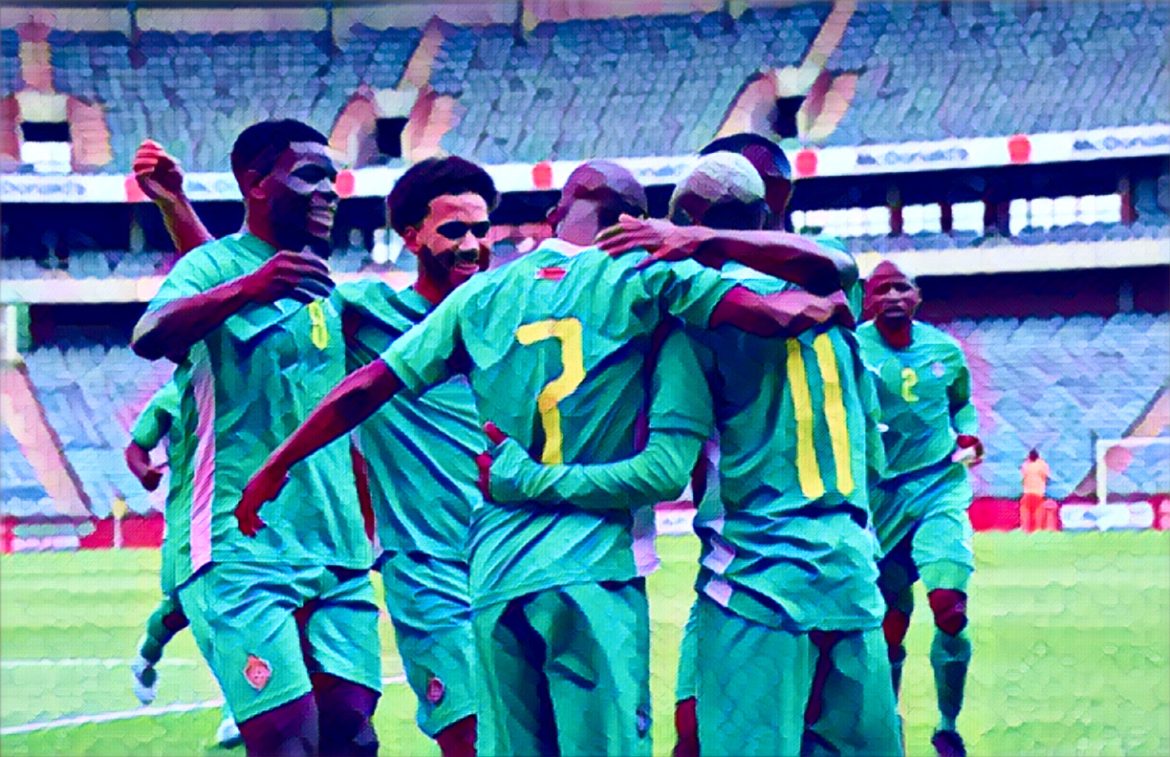KEY POINTS
- Zimbabwe’s AFCON appearances showcase its determination and potential despite challenges in infrastructure and consistent success.
- Legends like Peter Ndlovu and Bruce Grobbelaar have elevated Zimbabwe’s global football profile and inspired new talent.
- Regional cooperation and grassroots investment are vital for Zimbabwe’s football development and long-term success on the continental stage.
Zimbabwe has a rich footballing heritage that has played a pivotal role in shaping the sport within the African continent.
Known as the Warriors, the Zimbabwean national football team has long been a symbol of pride and resilience for its people (FIFA, 2024).
From its humble beginnings in the 1960s to its present-day ambitions, Zimbabwe’s journey in football reflects the nation’s broader aspirations for excellence and unity (Elo Ratings, 2025).

Sport is fostering community and Social change in Zimbabwe
This article delves into Zimbabwe’s significant contributions to the African Cup of Nations (AFCON), exploring the country’s historical journey, its performances on the continental stage, and the opportunities that lie ahead.
By examining these elements, we gain a deeper understanding of Zimbabwe’s influence in African football and its potential for growth in the sport.
Zimbabwe’s football history:
Early beginnings
Zimbabwe’s football history traces back to 1962, when it played its first international match as Southern Rhodesia against Australia.
Despite facing numerous challenges, including limited resources and political struggles, the nation’s love for football grew steadily.
Football became a unifying force during the colonial era and post-independence, serving as a platform for national identity and pride.
In the early years, domestic leagues were dominated by iconic clubs such as Highlanders and Dynamos, which produced players who would go on to shape the national team.
These clubs laid the foundation for Zimbabwe’s competitive spirit and footballing philosophy, emphasizing teamwork, resilience, and flair (CAFOnline, 2022).
African Cup of Nations appearances
Zimbabwe made its AFCON debut in 2004, marking a significant milestone in the country’s football history.
Despite facing tough competition in the group stage, the Warriors showcased their determination, securing their first AFCON win against Algeria.
Subsequent appearances in 2006, 2017, and 2019 solidified Zimbabwe’s position as a competitive force in African football.
Each AFCON appearance brought moments of brilliance and heartbreak. The 2019 edition was particularly memorable, with Zimbabwe’s spirited performances capturing the attention of fans across the continent.
While the team has yet to progress beyond the group stage, its participation has provided valuable experience and exposure for players and coaches alike.
Notable players
Zimbabwe has produced several football legends who have left an indelible mark on the sport. Peter Ndlovu, often referred to as the “Bulawayo Bullet,” was the first African player to play in the English Premier League, becoming a trailblazer for Zimbabwean footballers abroad.
Goalkeeper Bruce Grobbelaar, renowned for his eccentric style and exceptional skills, was instrumental in Liverpool’s European Cup success.
These icons have inspired generations of players and fans, proving that Zimbabwe can produce world-class talent.
Their achievements have not only elevated the country’s football profile but have also served as a source of national pride.
Zimbabwe’s role in the African cup of Nations:
Group stage performances
Zimbabwe’s AFCON campaigns have often been marked by resilience and moments of brilliance, despite challenges in advancing beyond the group stage. The team’s inaugural win against Algeria in 2004 set the tone for its fighting spirit. Matches against continental powerhouses like Egypt and Senegal have demonstrated Zimbabwe’s potential to compete at the highest level.
The Warriors’ performances have highlighted the depth of talent within the team and their ability to rise to the occasion. While consistent success remains elusive, Zimbabwe’s determination to challenge stronger opponents has earned the respect of fans and rivals alike.
Knockout stage appearances
Though Zimbabwe have yet to make a significant impact in the knockout stages of AFCON, the 2019 edition offered a glimpse of what the team could achieve with better preparation and support.
A narrow loss to Nigeria in the quarterfinals underscored the Warriors’ potential to compete with some of the continent’s best teams.
Improving on past performances will require addressing key challenges, including tactical discipline, player fitness, and mental resilience (CSIS, 2024). With the right investments and a long-term vision, Zimbabwe can aspire to make deeper runs in future AFCON tournaments.
Impact on African football
Zimbabwe’s contributions to African football extend beyond its performances on the pitch. The country has played a vital role in promoting the sport in Southern Africa, hosting regional tournaments and nurturing young talent.
Zimbabwe’s football culture emphasizes inclusivity and grassroots development, inspiring neighboring countries to invest in the sport.
The Warriors’ participation in AFCON has also raised the profile of Southern African football, showcasing the region’s potential to compete on the continental stage. By continuing to develop its football infrastructure and talent pool, Zimbabwe can strengthen its influence within African football.
Challenges and opportunities
1. Infrastructure challenges
One of the key obstacles facing Zimbabwean football is inadequate infrastructure. Many of the country’s stadiums and training facilities fall short of international standards, limiting the national team’s ability to prepare effectively.
Upgrading these facilities is essential for improving player performance and attracting major tournaments (Zimadvocate, 2024).
Hosting an AFCON tournament could serve as a catalyst for infrastructure development, providing lasting benefits for the sport and the economy. However, this will require significant investment and collaboration between the government, private sector, and international organizations.
2. Talent development
Zimbabwe boasts a wealth of young football talent, but nurturing this potential requires a robust development system. Grassroots programs, youth academies, and coaching initiatives are critical for identifying and developing the next generation of players (Africa Top Sports).
Efforts to expand youth football programs and provide access to quality coaching can create a sustainable pipeline of talent. Partnerships with international clubs and organizations can also offer valuable opportunities for players to gain exposure and experience abroad.
3. Regional cooperation
Collaboration with neighboring countries presents an opportunity to enhance Zimbabwe’s football development. Regional partnerships can facilitate knowledge sharing, joint training programs, and cross-border tournaments, fostering a competitive environment that benefits all participants.
Zimbabwe’s active participation in the Council of Southern Africa Football Associations (COSAFA) has already yielded success, with two COSAFA Cup titles to its name. Expanding these efforts can further strengthen the country’s footballing foundation and its role in the region.
Zimbabwe’s journey to the African Cup of Nations reflects both its challenges and triumphs. While the Warriors have yet to achieve consistent success on the continental stage, their performances have inspired hope and showcased the country’s potential.
By addressing infrastructure gaps, investing in talent development, and fostering regional cooperation, Zimbabwe can unlock new opportunities for growth in African football.
As the nation continues to build on its rich footballing history, the dream of hosting an AFCON tournament and making a deep run in the competition remains within reach.
Zimbabwe’s role in African football is one of promise and determination, and the future holds immense possibilities for the Warriors and their passionate fans.


